The story of the life of my father, Arthur Brown, Topper, as he was known in the Army. He was taken prisoner in the Battle of Dunkirk and remained as a prisoner of war for almost five years. He then managed to escape and arrived back in England a few months before the war ended. This series of posts will trace his life, his wartime experience and the way, years later, he was finally reunited with the Polish family who saved his life.
Here are links to the previous episodes.
- Part 1 – Before the War
- Part 2 – Prisoner of War
- Part 3 – In the Prison Camp
- Part 4 – The Final Escape
- Part 5 – Waiting for the Russians
Going Home!
They had been hiding in a house with a Polish family for five weeks waiting for the Russian army to come to liberate them. When the Russian army finally took the town where they were hiding, they were not yet out of danger. They were seconds away from being executed by Russian troops, and were saved at the very last moment by a passing Russian officer.
My father and his three fellow ex-prisoners of war then left the village of Skorcz on March 5th, heading towards Warsaw. They walked and hitched lifts in Russian lorries. They were welcomed by the Poles along the route and never failed to have something to eat or a place to stay for the night. The Poles were generally scared of the marauding Russian army and felt somewhat protected by the presence of the British soldiers.
They eventually got to Warsaw. Here they were able to join up with several hundred other liberated prisoners. They were to travel to the port of Odessa where they would be put on a ship which would take them back to England.
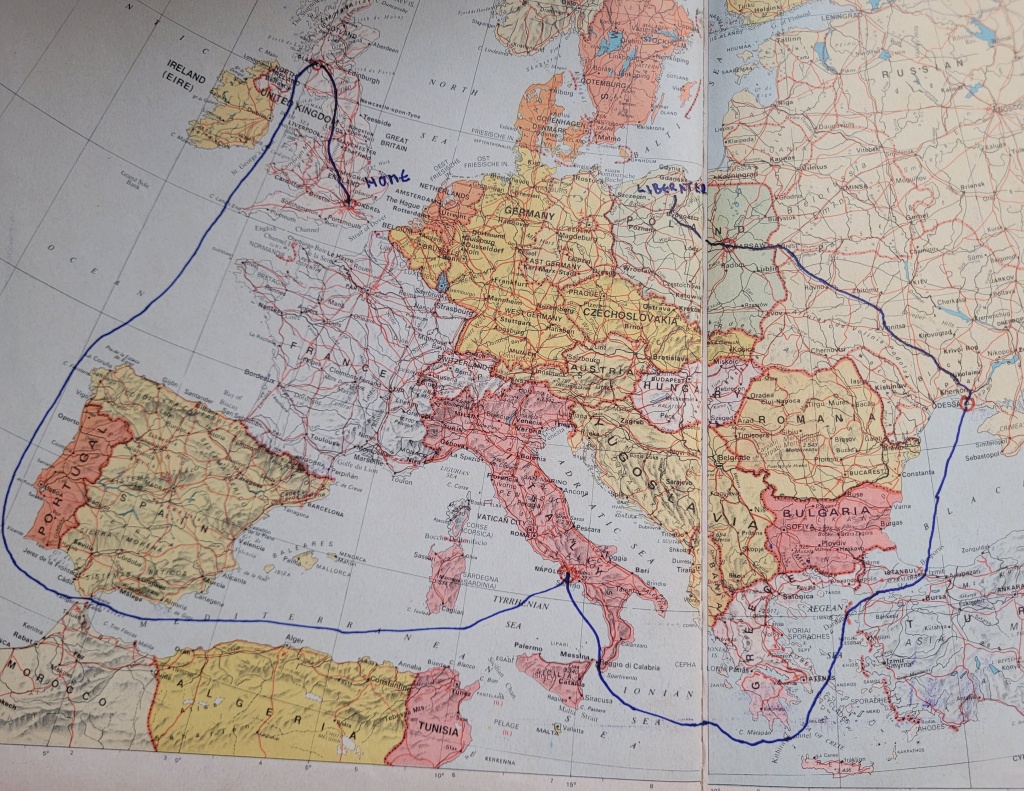
In Warsaw, they were loaded onto cattle trucks, each wagon with makeshift bunks and a stove in the middle of the floor. The journey on the train took nine days, Trains going up to the front were always given priority, as were trains returning to load up with more provisions. This meant that my father’s train spent many hours in sidings waiting to find a gap between trains in order to advance.
When the train stopped, the soldier went looking for food to buy from nearby farms or villages. The train would hoot when it was ready to depart and the soldiers would run back to the train.
My father had no money to buy food so he sold his army great-coat. He spent all his money except for this one bank-note which I now have….. here it is.
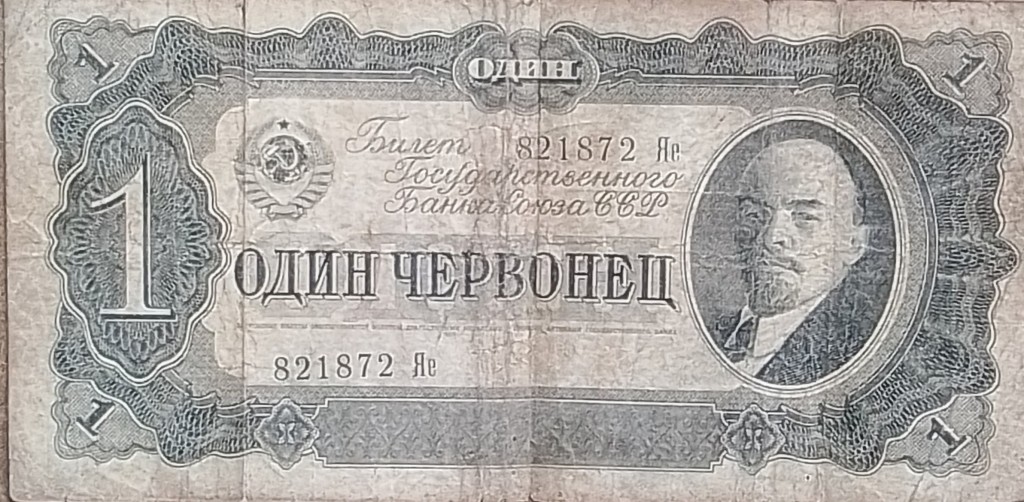
Eventually they got to Odessa. They spent one night there and were then transported to the dock where the ship, the Duchess of Richmond was ready and waiting. On boarding, each soldier was given a Red Cross kit with essentials.
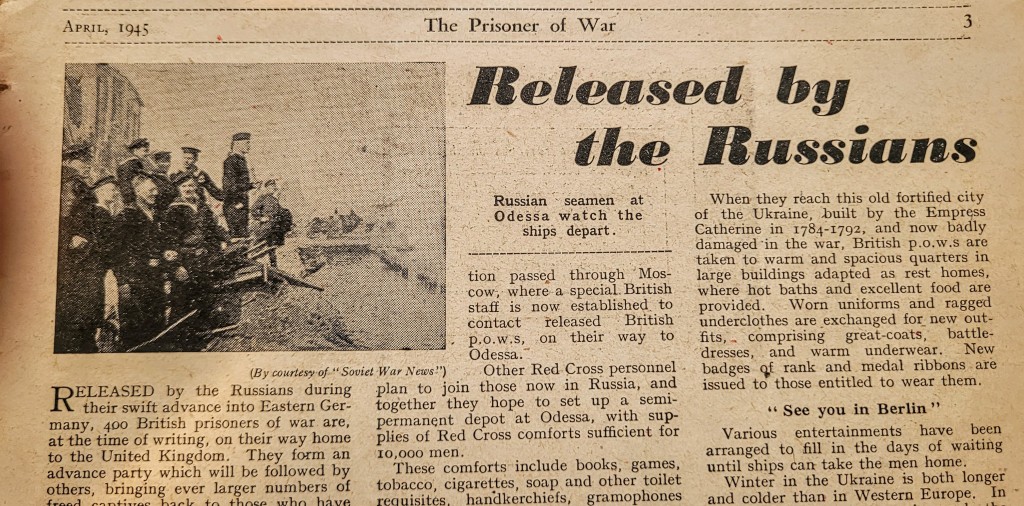
There were about a hundred British POWs on the ship and for the first days they lived like lords. The ship sailed through the Bosporus to Naples in Italy where it filled up with a large number of troops returning home..
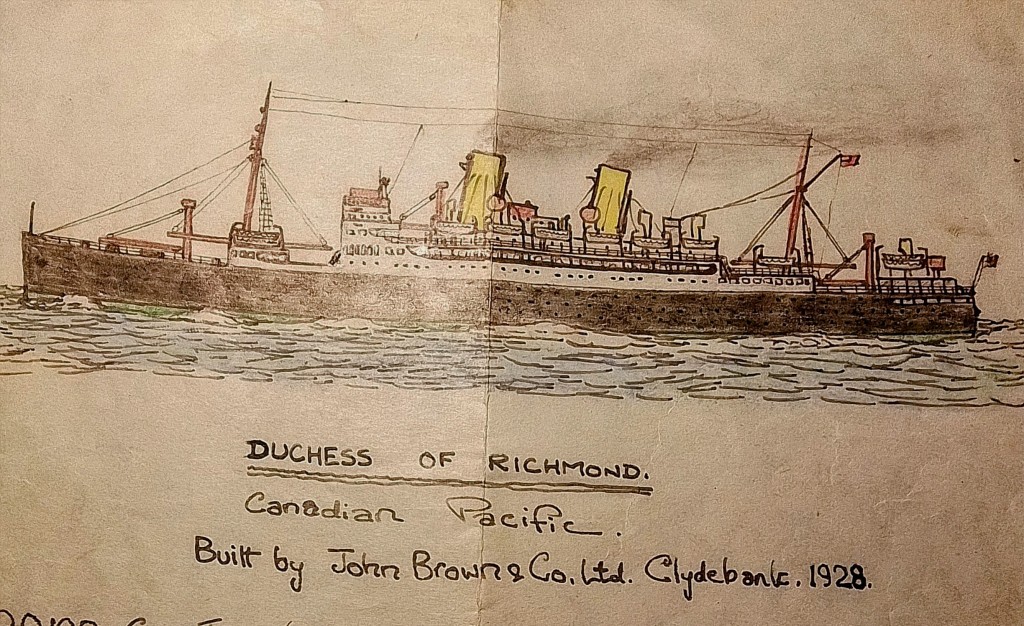
After passing through the straits of Gibraltar, they joined a convoy and were protected by destroyers for the rest of the voyage back to Britain. There was still the need to watch out for German U-boat submarines which were still prowling the waters for new victims.
The ship docked in Scotland in a port near Glasgow. The troops were transferred onto a train bound for London. My father scribbled a note on a piece of paper, wrapped the paper around a half-crown coin and threw it out of the window as the train passed through a station. On the paper it simply gave the instruction “Please send telegram to my Mother!”
Someone picked up the note and duly sent it. I know, because here it is!
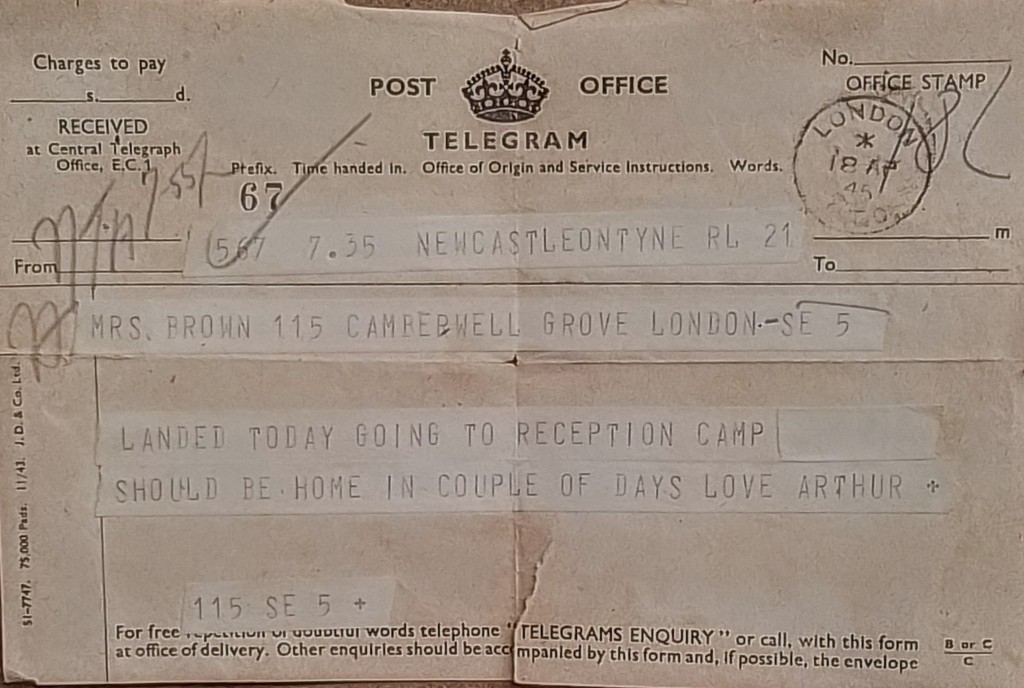
On arriving in London, he was given six weeks leave and had the long awaited emotional meeting with his mother and sister, Joan. He was meeting them after a long absence of five years.
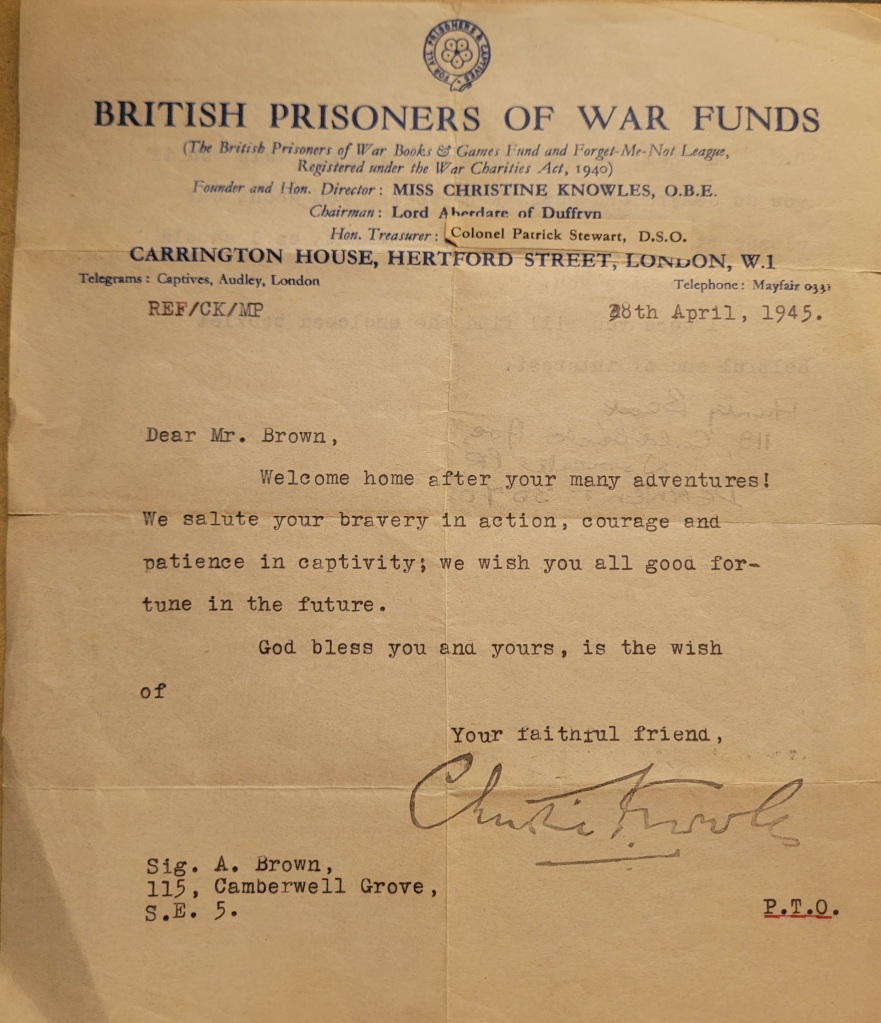
As he had promised in his letters home, he took the family on a holiday to Teignmouth in Devon. One evening, they popped into a local pub, the Teign Brewery for a drink. It was there that he met Babs, (Barbara) who was to become his future wife and, of course, my mother.
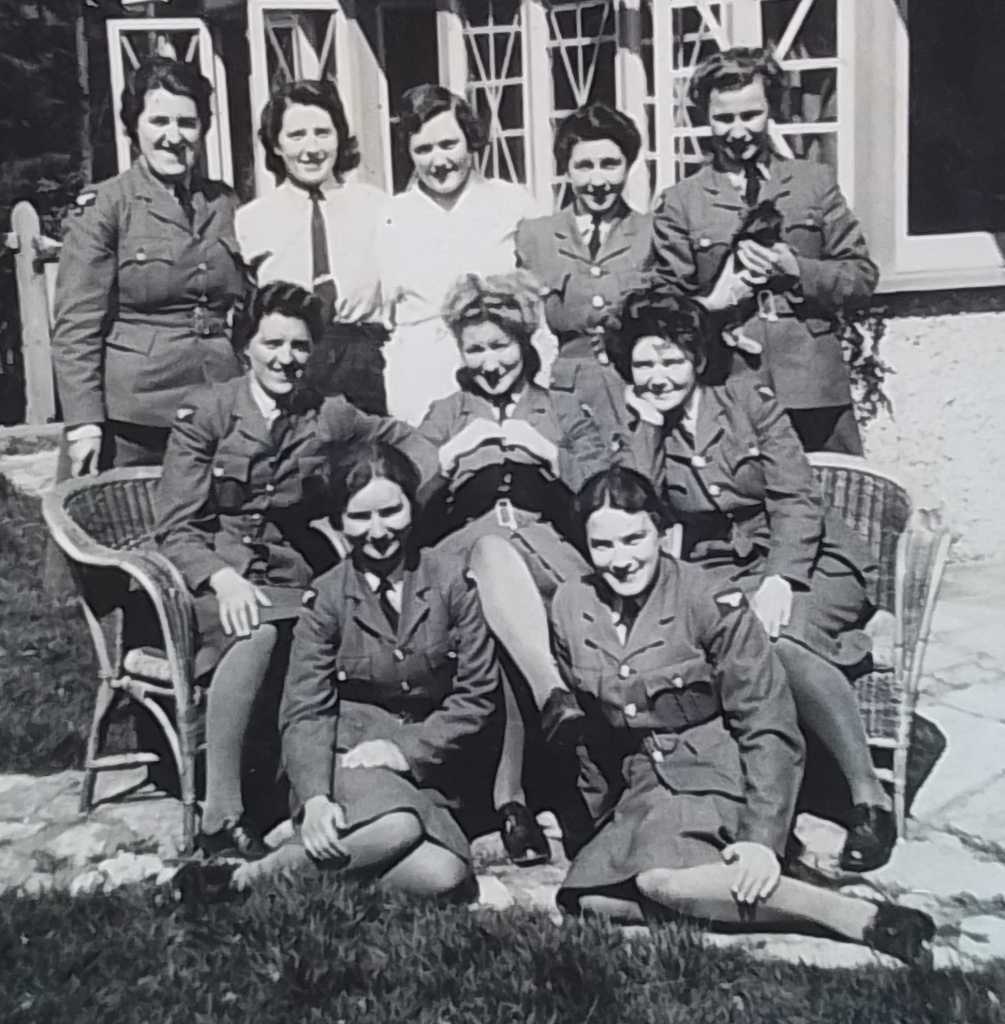
Barbara was serving in the WAAF (Women’s Auxiliary Air Force). In February 1946 they were married.
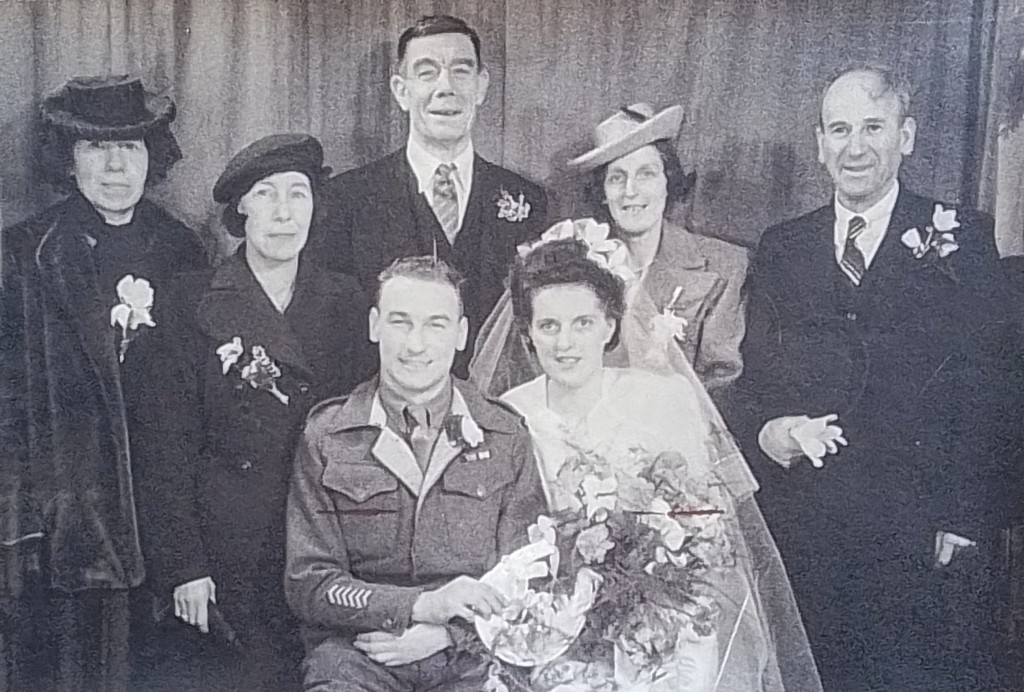
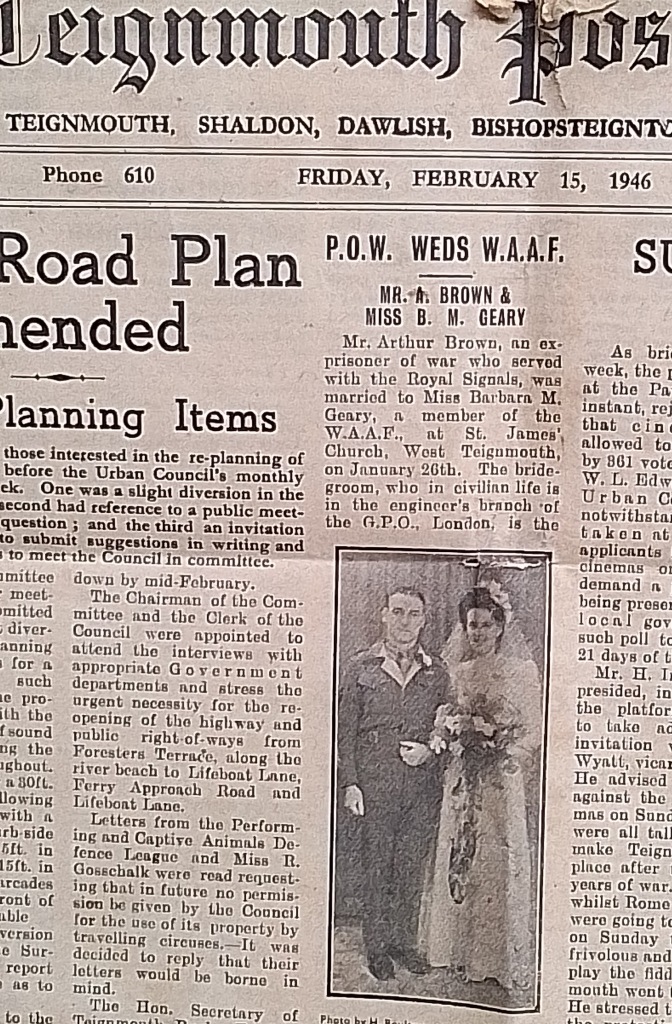
Soon after his marriage he was demobbed from the regular army and was transferred to the Army Reserve.
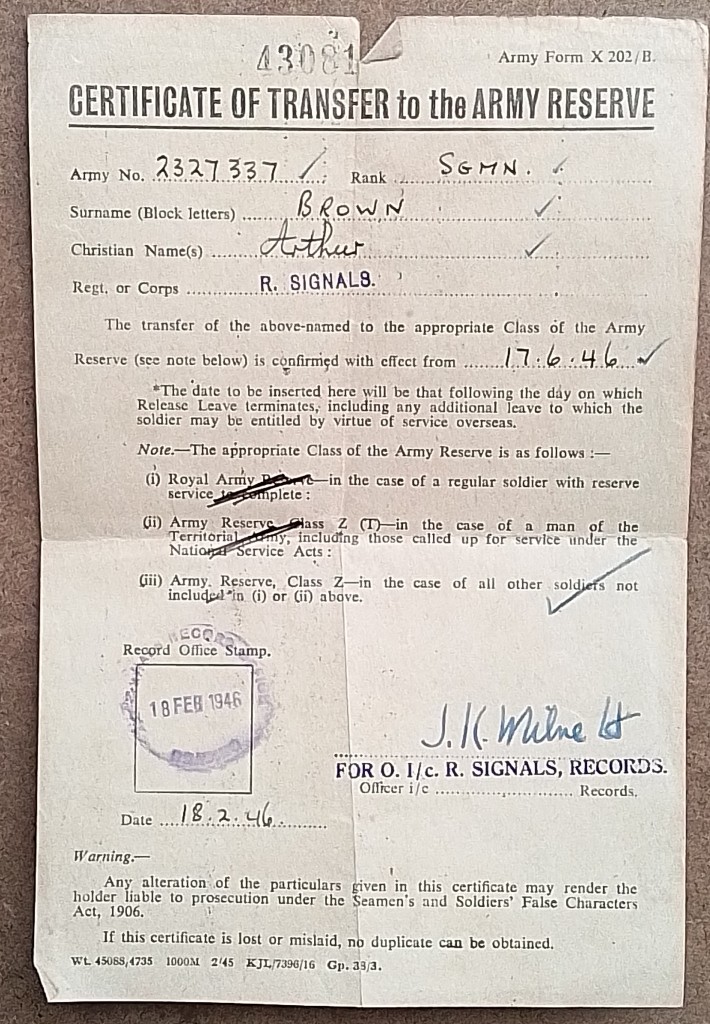
He then went back to work for the post office where he remained all his working life ending up as a manager. (He was responsible for all the telecommunications for the 1966 World Cup. In the final, England played Germany and became World Champions. I was extremely jealous as he met all the players!
My brother was born a year after Arthur and Barbara got married ……. and me…….. I came along in 1953.
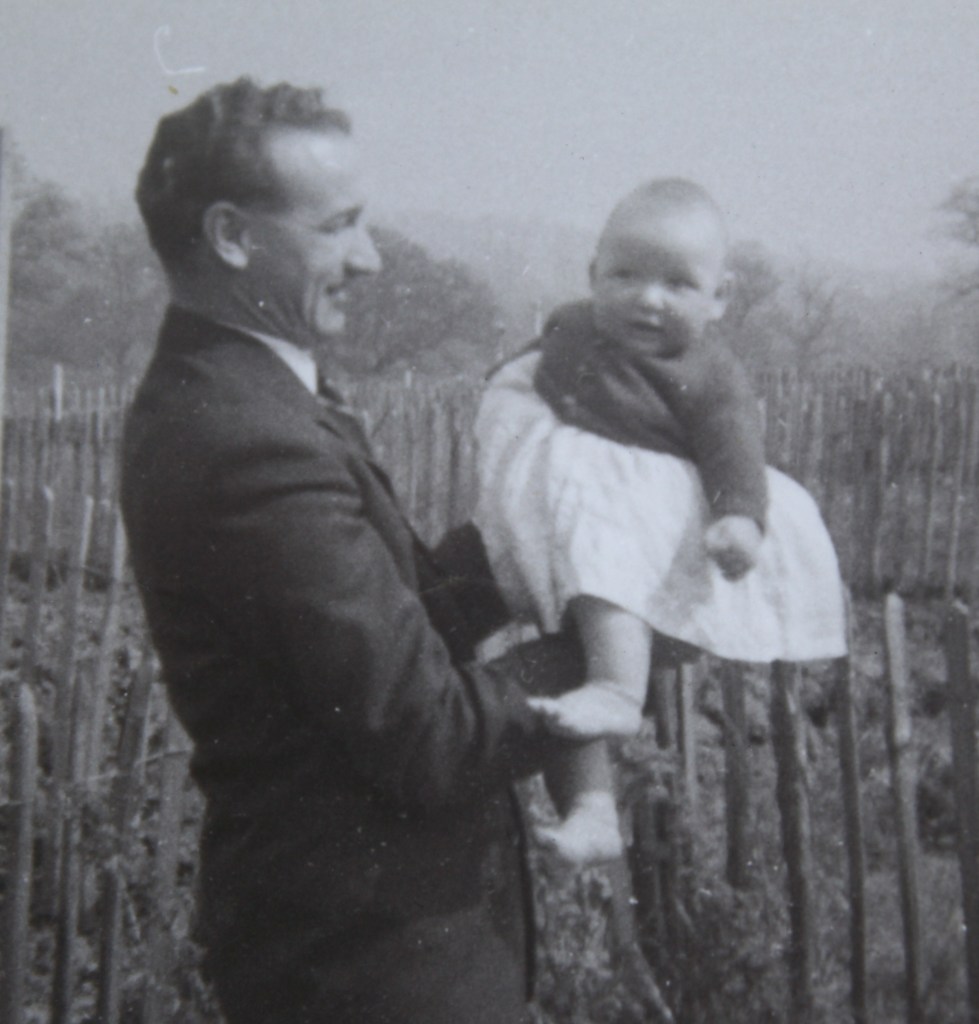
He never spoke much about his wartime experiences, but I know that the memories were always there. On Remembrance Sunday he would always proudly wear his medals and the tie of the Royal Signals Corp.
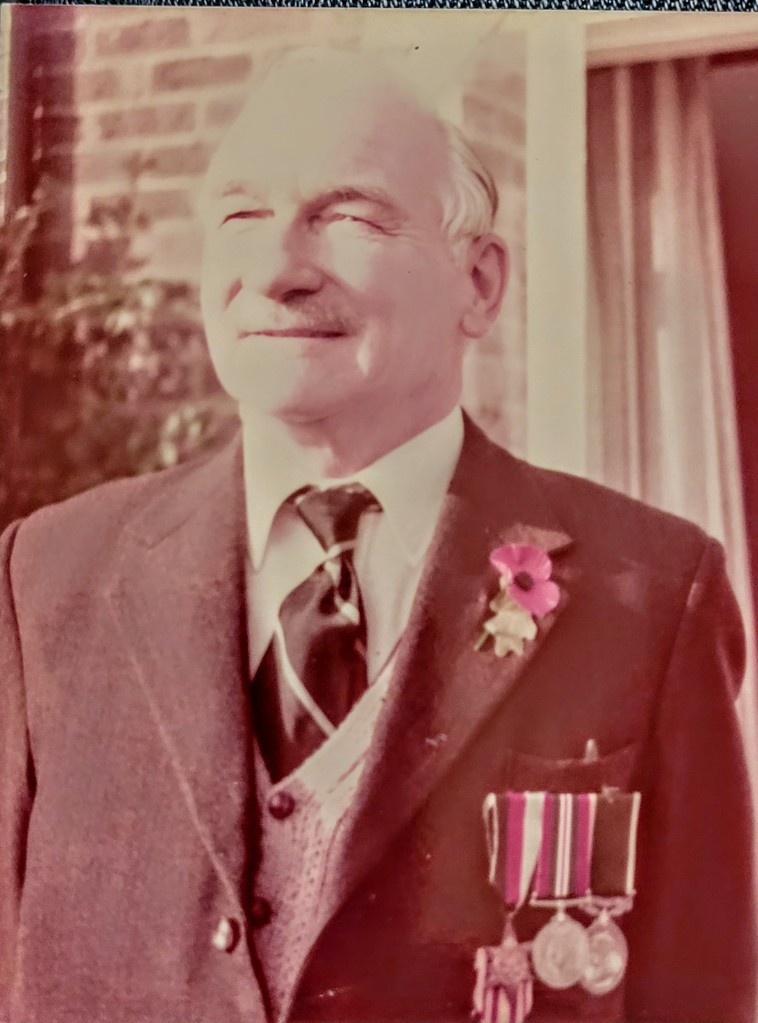
On several occasions he went back to the Dunkirk beaches to commemorate his fallen comrades.
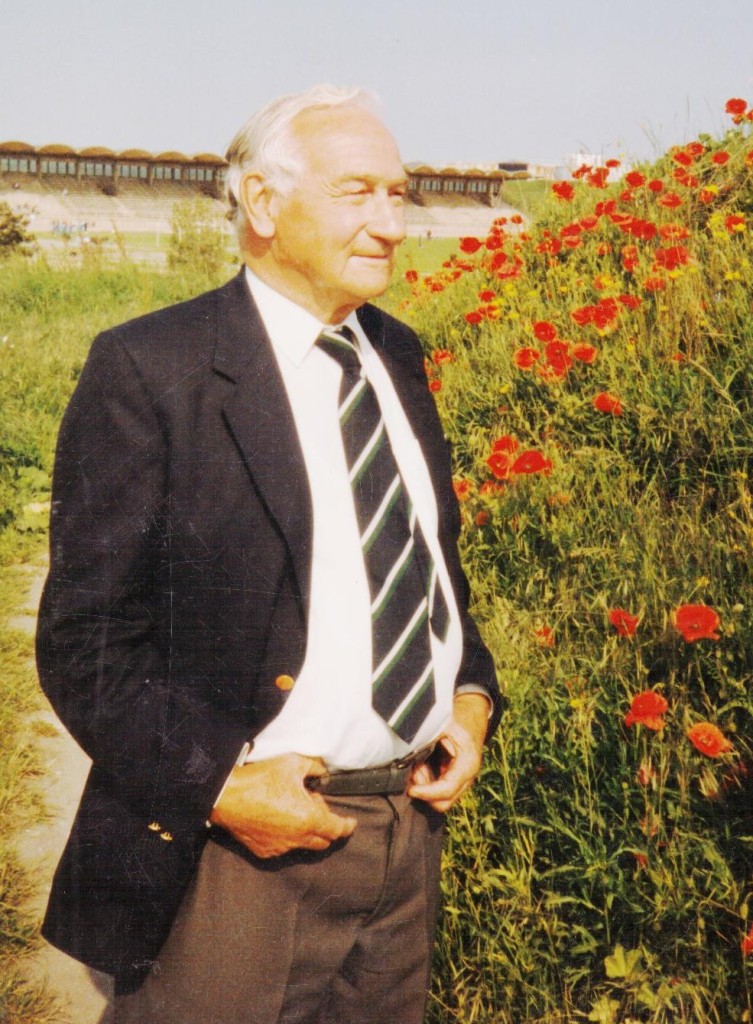
.
He maintained an ever lasting gratitude for Marta Szachta and her family for she didn’t only hide him and his comrades, but risked her life and the life of her family in doing so.
He maintained in contact with them after the war. I’ll write a little more about that in the next and last episode about my father ‘s wartime experiences.
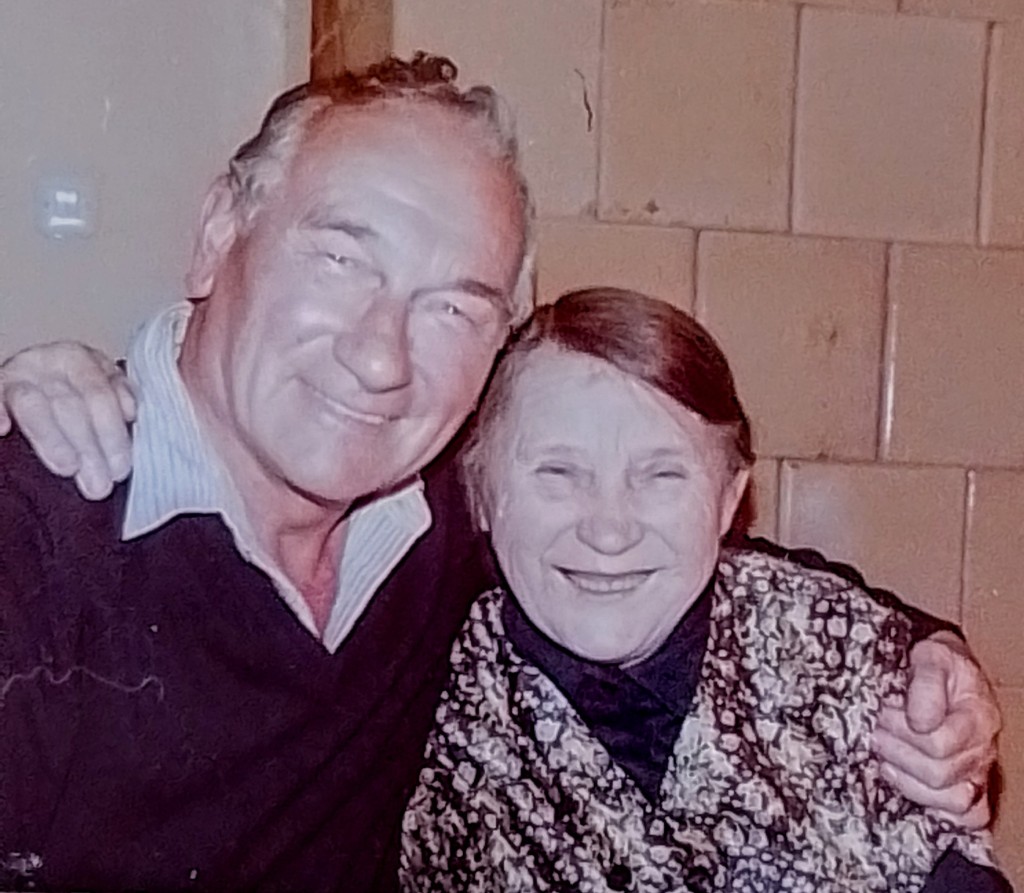
MARTA SZACHTA – Hid my father and comrades for five weeks – Died in 1994 aged 90 years old
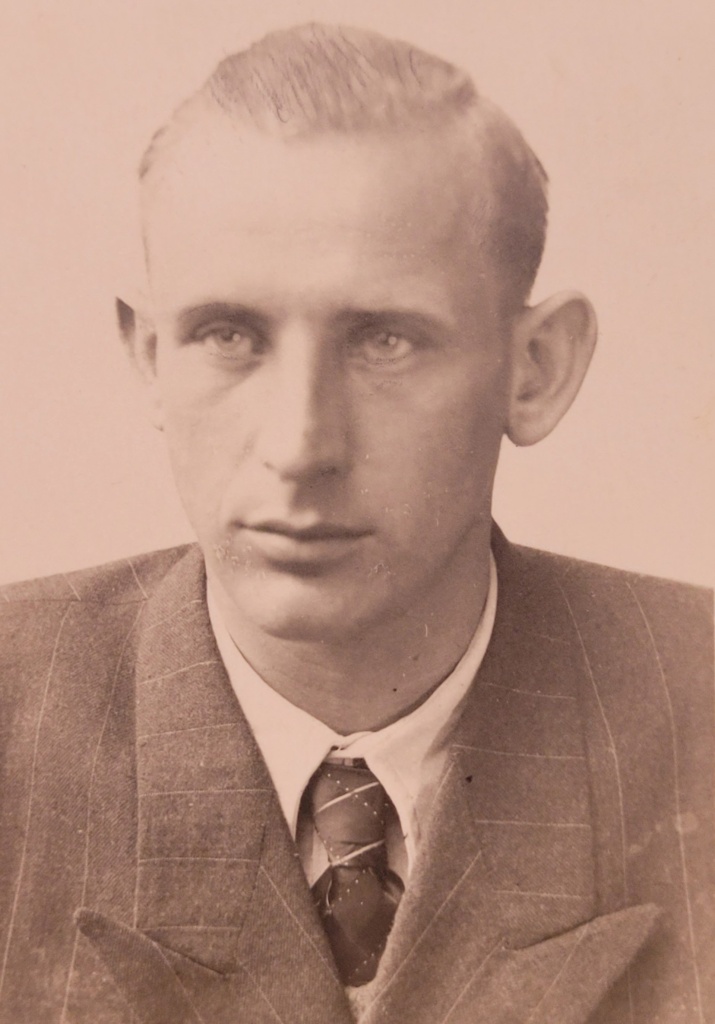
KLEMENS SZACHTA – Marta’s son- He was seventeen when he took my father and his comrades to his mother’s house. He died in 1992 aged 65.
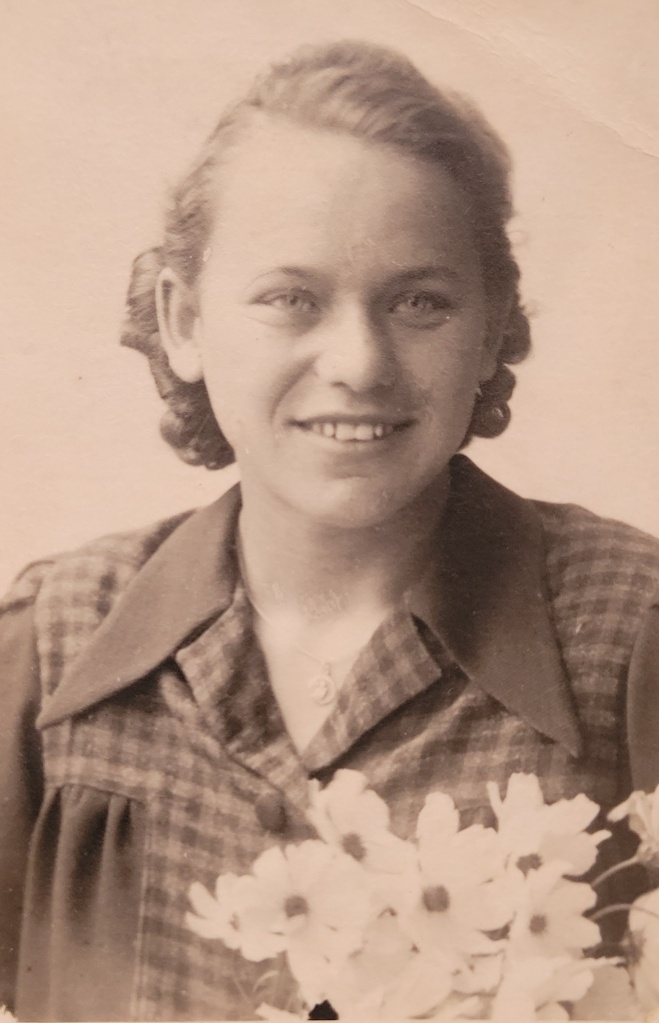
KRISTINA SZACHNA, Klemens sister who was then sixteen. she died in a boating accident in 1953 aged 35.
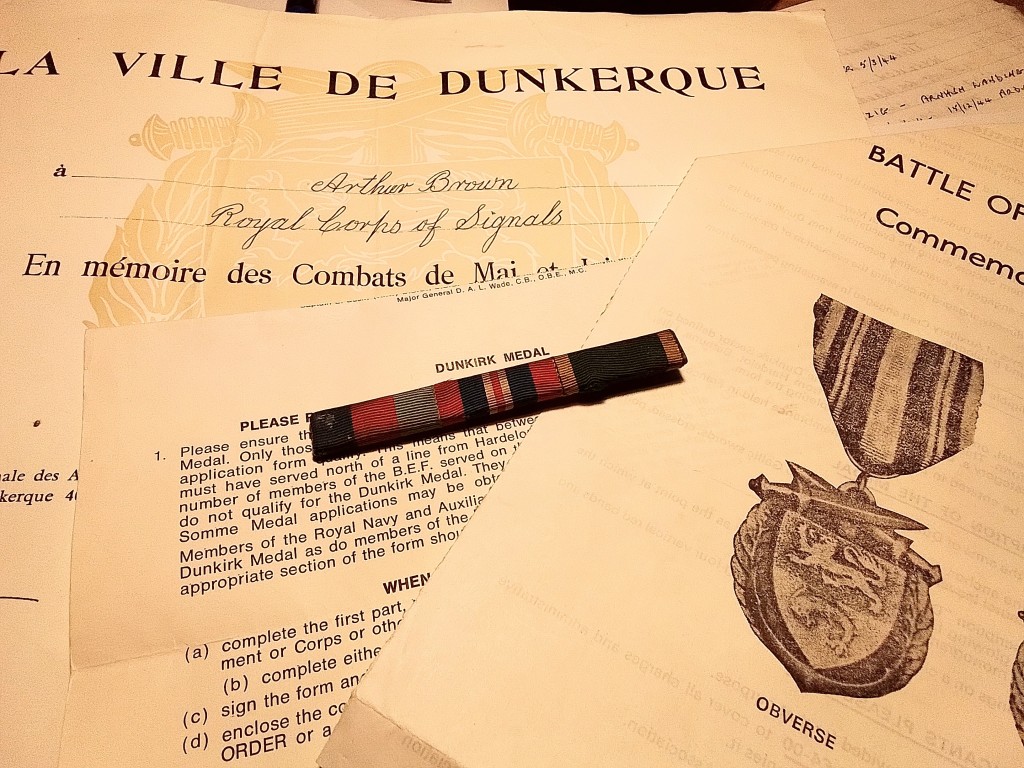
Leave a comment